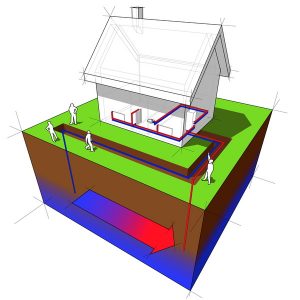 Are you having a new home constructed in the coming year? This is a great investment, and you have many considerations to make in the process of home building—your Gulf Breeze, FL air conditioning options being at the top of the list. This may seem like something that can wait until the end of the process, but if you’ve ever considered geothermal cooling and heating for your home, then its best to look at the benefits before your home is constructed, as this system is installed underground.
Are you having a new home constructed in the coming year? This is a great investment, and you have many considerations to make in the process of home building—your Gulf Breeze, FL air conditioning options being at the top of the list. This may seem like something that can wait until the end of the process, but if you’ve ever considered geothermal cooling and heating for your home, then its best to look at the benefits before your home is constructed, as this system is installed underground.
Thanks to advancements in technology, installing a geothermal system, also referred to as a geothermal heat pump, is easier than ever before, and it can certainly be retrofitted for an existing home—so if you’ve come across this and are already in a home, please reach out to us! There are a number of advantages to using a geothermal system, which we’ve covered below.

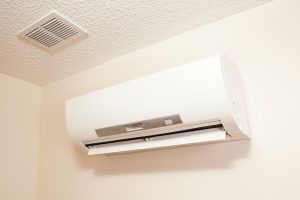 While for most parts of the country, springtime is the best time to arrange for air conditioning maintenance, around here we typically find that wintertime fits the bill instead. This is because our temperatures don’t really begin to cool down enough to stop using our cooling systems until winter. If you are considering a new cooling system—and perhaps one that can serve as a functional and efficient heater as well—then you’d do well to consider a
While for most parts of the country, springtime is the best time to arrange for air conditioning maintenance, around here we typically find that wintertime fits the bill instead. This is because our temperatures don’t really begin to cool down enough to stop using our cooling systems until winter. If you are considering a new cooling system—and perhaps one that can serve as a functional and efficient heater as well—then you’d do well to consider a 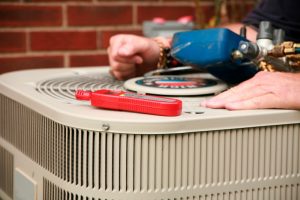 In most parts of the country, we’re prepping for winter, by making sure our heaters are maintained and any needed repairs are managed. However, in these parts, winter doesn’t mean much—except that it’s the perfect time to turn off our air conditioners for a bit! This means it’s also the perfect time to schedule
In most parts of the country, we’re prepping for winter, by making sure our heaters are maintained and any needed repairs are managed. However, in these parts, winter doesn’t mean much—except that it’s the perfect time to turn off our air conditioners for a bit! This means it’s also the perfect time to schedule 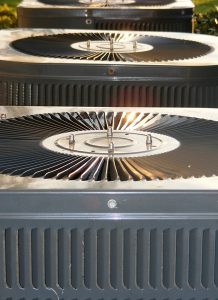 Though temperatures have begun to cool off some for the fall season, you’re likely still using your air conditioner on a fairly regular basis. And since we all know heat waves can hit even in the dead of winter, you want to do everything you can to ensure that your cooling system is ready to handle whatever comes its way. This means scheduling routine maintenance, but also being vigilant about check for signs that your system needs
Though temperatures have begun to cool off some for the fall season, you’re likely still using your air conditioner on a fairly regular basis. And since we all know heat waves can hit even in the dead of winter, you want to do everything you can to ensure that your cooling system is ready to handle whatever comes its way. This means scheduling routine maintenance, but also being vigilant about check for signs that your system needs 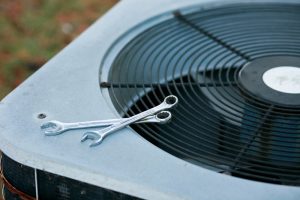 Fall is officially here! Okay, so that doesn’t mean much for those of us in Florida—but temperatures will start to cool down a bit, at least to the point that we might be able to turn off our AC systems at night soon. With this short reprieve from the heat, now is the perfect time to consider what
Fall is officially here! Okay, so that doesn’t mean much for those of us in Florida—but temperatures will start to cool down a bit, at least to the point that we might be able to turn off our AC systems at night soon. With this short reprieve from the heat, now is the perfect time to consider what 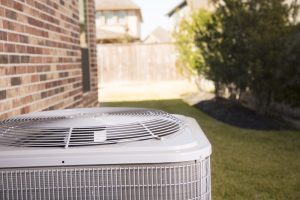 Hurrah, summer is almost over! Alright, so maybe that doesn’t mean much for those of us in Northwest Florida. In fact, it means we have to do our due diligence even more than other parts of the country to ensure that our air conditioning systems are in good condition year-round, to supply us with efficient and effective cooling.
Hurrah, summer is almost over! Alright, so maybe that doesn’t mean much for those of us in Northwest Florida. In fact, it means we have to do our due diligence even more than other parts of the country to ensure that our air conditioning systems are in good condition year-round, to supply us with efficient and effective cooling. As the official end of summer draws near, it doesn’t mean a whole lot for those of us in Northwest Florida as far as temperatures are concerned. What it does mean though is that our
As the official end of summer draws near, it doesn’t mean a whole lot for those of us in Northwest Florida as far as temperatures are concerned. What it does mean though is that our 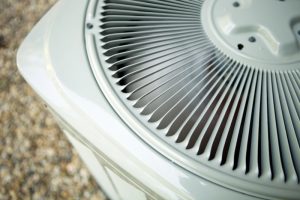 There isn’t an appliance on the market that can last forever, no matter how well it’s constructed or how well we take care of it. Your air conditioning system is no exception, with a limited lifespan of which when it nears the end, it’s a good idea to have it replaced before it suffers a complete breakdown. You could very well end up trapped on a hot day—when AC systems are most likely to succumb to stress—with no immediate relief in sight, and you rush to schedule a new air conditioner installation.
There isn’t an appliance on the market that can last forever, no matter how well it’s constructed or how well we take care of it. Your air conditioning system is no exception, with a limited lifespan of which when it nears the end, it’s a good idea to have it replaced before it suffers a complete breakdown. You could very well end up trapped on a hot day—when AC systems are most likely to succumb to stress—with no immediate relief in sight, and you rush to schedule a new air conditioner installation. When you see water present in your home with no known source, it’s natural that you’d want to call a plumber for repairs. However, the problem might actually be your air conditioner, not your plumbing system. Cooling systems can leak water, but not from any part of the plumbing that snakes its way through your home—rather, it’s from condensation that has built up within your AC system and might, if drainage isn’t property set up, find a way to spill over and into your home.
When you see water present in your home with no known source, it’s natural that you’d want to call a plumber for repairs. However, the problem might actually be your air conditioner, not your plumbing system. Cooling systems can leak water, but not from any part of the plumbing that snakes its way through your home—rather, it’s from condensation that has built up within your AC system and might, if drainage isn’t property set up, find a way to spill over and into your home.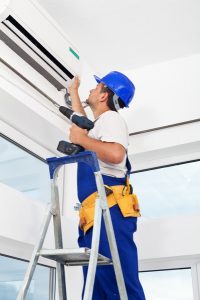 Ductless mini split systems have become increasingly popular in homes throughout the country in recent years, and rightfully so. Instead of operating through a network of ductwork conned to an indoor air handler and evaporator unit, ductless systems use a small outdoor unit connected by refrigerant and conduit lines to multiple small wall-mounted air handlers throughout the home.
Ductless mini split systems have become increasingly popular in homes throughout the country in recent years, and rightfully so. Instead of operating through a network of ductwork conned to an indoor air handler and evaporator unit, ductless systems use a small outdoor unit connected by refrigerant and conduit lines to multiple small wall-mounted air handlers throughout the home.